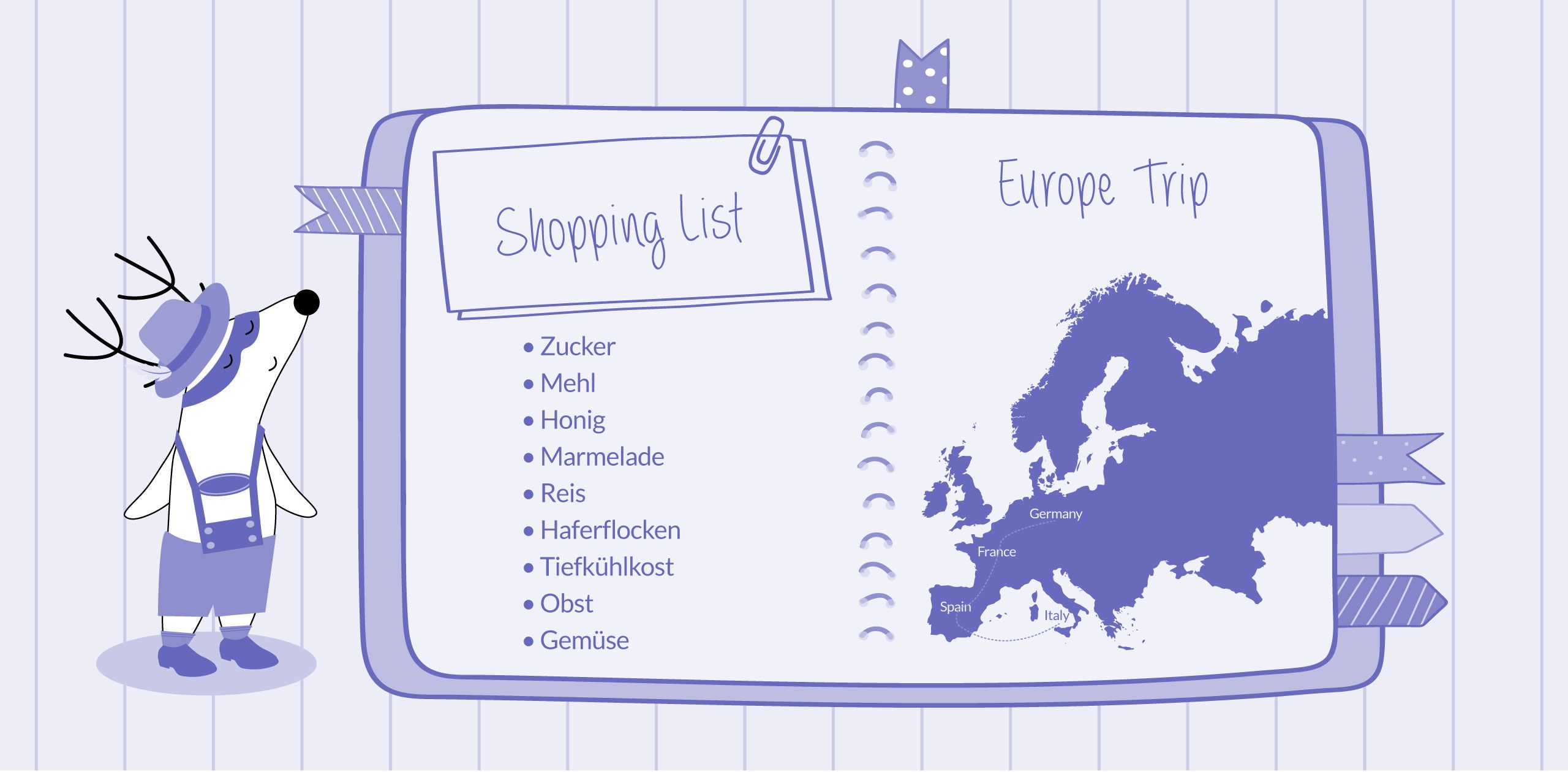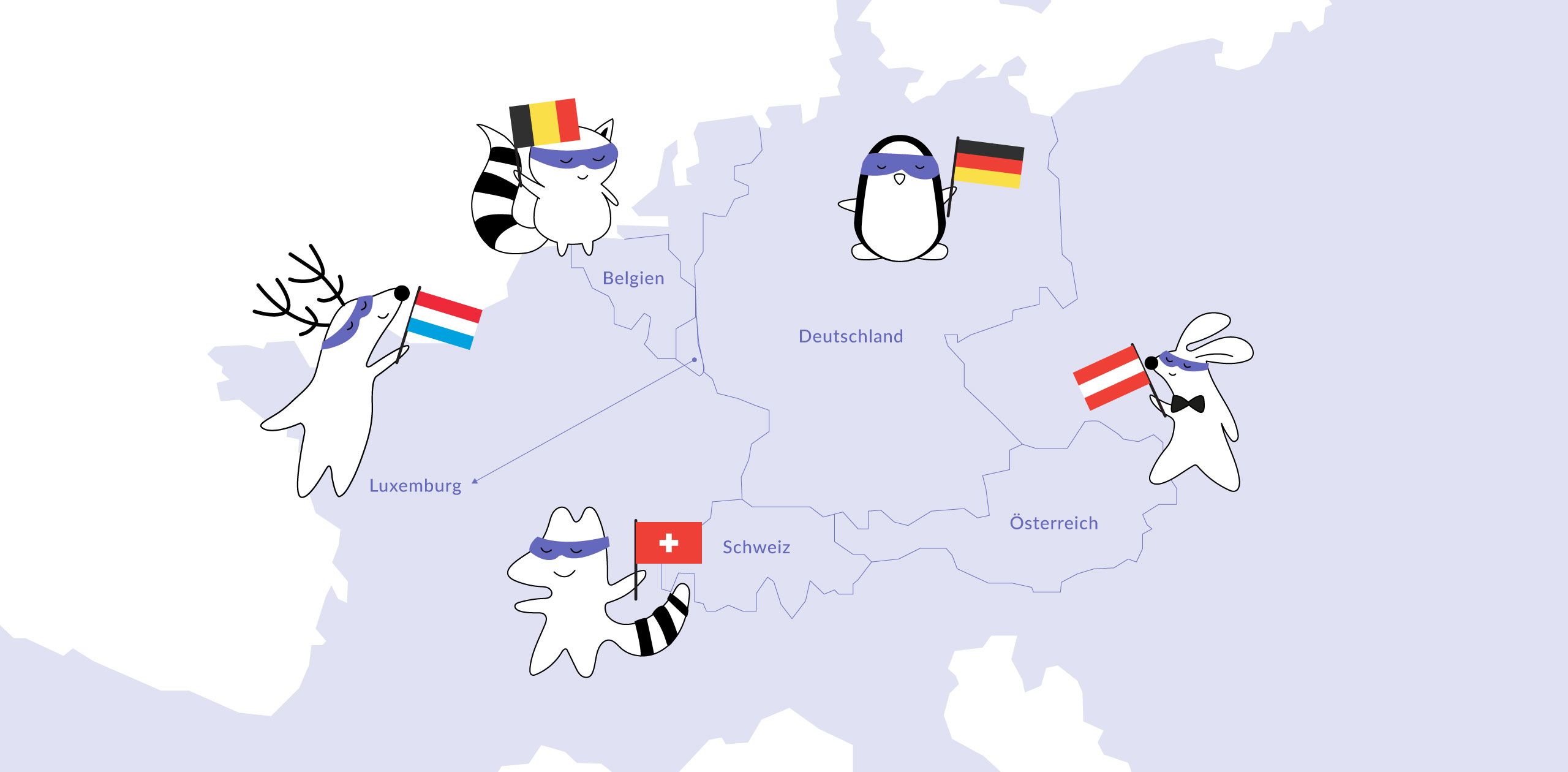
Germany is one of the strongest countries in the business world, and working for a German company or cooperating with German partners can give you an edge on the career market. Nevertheless, doing business in German-speaking countries can be intimidating for those who don't know the language – and even for those who already speak German.
If you want to life this kind of lifestyle, you’ll need more Business German than just a couplle key phrases. You’ll also need to know important grammar structures as well as being familiar with German business culture and etiquette.
However, with a little preparation and some key vocabulary words and phrases, you can feel more confident when meeting with clients or suppliers. In this article, we will provide some basic phrases that will help you get by in meetings as well as share some helpful tips for business communication in German. Let's get started!
Why Learn Business German?
Business German is the term used to describe the specific formal language needed for doing business with German speakers. The importance of learning Business German cannot be overemphasized – after all, it's practically impossible to do business in a foreign country without some knowledge of the language.
There are several reasons why learning Business German is essential for those looking to do business in Germany or with German partners.
First and foremost, Business German is the language of business. It's used in meetings, negotiations, and other dealings.
Secondly, having a good command of Business German can help you navigate bureaucratic processes more easily. German bureaucracy can be quite daunting for those who don't know the language. It’s even difficult for native speakers.
Finally, learning Business German can give you a competitive edge on the job market. In today's globalized economy, more and more companies are doing business internationally. As a result, there is an increasing demand for employees who are able to communicate in several languages.
Fortunately, learning about the business aspect of the German language doesn’t have to be challenging. Let’s learn about the basic business German skills you need to have – starting with knowing the vocabulary.
Business German Vocabulary
When doing business in German-speaking countries, it's important to know some key vocabulary words and phrases. They will help you stay afloat and comprehend what someone wants from you, as well as show your professional side in business meetings.
Here are the most important German business words and phrases:
Native
Translation
der Geschäftsmann
the businessman
die Geschäftsfrau
the business woman
der Vorstand
the board of directors
das Treffen
the meeting
die Akten
the files
das Projekt
the project
die Telefonkonferenz
the conference call
die Vorbereitung
preparation
der Lebenslauf/ [resumé
resumé / CV
das At-Zeichen
“at” sign (@)
das Bewerbungsgespräch, Vorstellungsgespräch
(job) interview
die Fähigkeiten
abilities, capabilities, competencies, skills
der Chef, die Chefin, der Vorgesetzter, die Vorgesetzte/ [boss
boss / superior
die Visitenkarte
business card
die Firma, die Gesellschaft
company, firm
die Kleiderordnung
dress code
unternehmerisch
entrepreneurial
das Ziel, die Zielsetzung
goal, target
der/die Stellvertreter(in)
fill-in, proxy, representative, stand-in, substitute
die Personalabteilung
human resources, HR
der/die Personalmanager(in)
human resources manager
das Einkommen
income
die Branche
industry, sector
das Praktikum
internship (US)
rechtliche Aspekte
legal aspects
das Empfehlungsschreiben
letter of recommendation
das Gehalt
salary
der Bewerbungsprozess
application process
eine Firma leiten
to run a business
Stellenangebot
vacancy, opening, post
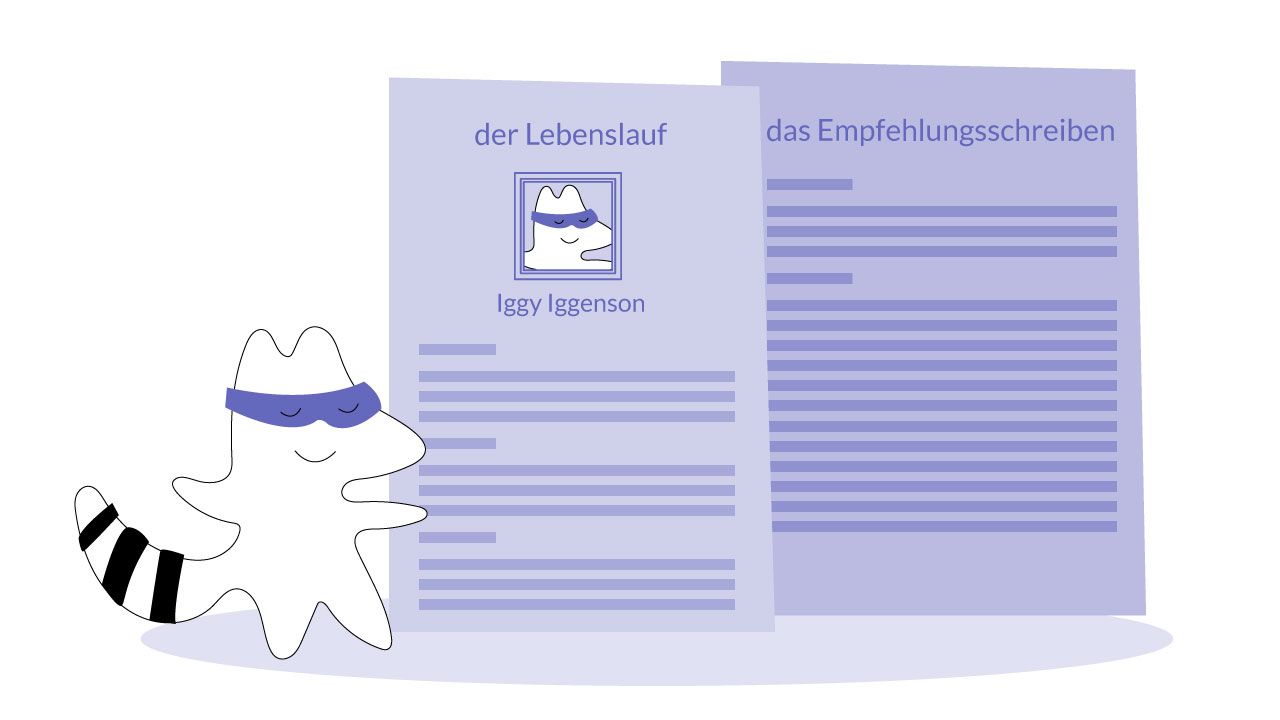
Personal Titles:
Native
Translation
Herr
Mr.
Frau
Mrs. or Ms.
Herr Doktor
Doctor (male)
Frau Doktor
Doctor (female)
Composing a letter / email:
Native
Translation
Sehr geehrte Damen und Herren
Dear Sir or Madam
Sehr geehrter Herr / Sehr geehrte Frau
Dear Mr. | Dear Mrs. (or Miss)
Ich schreibe bezÏ‹glich…
I am writing about…
Mit freundlichen GrÏ‹βen
Yours sincerely
Mit besten GrÏ‹βen
With kind regards
Vielen Dank für Ihre Nachricht / Brief / E-Mail/ [Thank you for your message | letter
Thank you for your message | letter / email
Bezugnehmend auf unser Telefonat / Gespräch / Meeting / Besprechung…
Further to our telephone conversation | conversation | meeting | discussion…
Bezugnehmend auf Ihr…
I am writing in reference to your…
Im Anhang finden Sie…
Please find attached…
Ich bedauere Ihnen mitteilen zu müssen, dass…
I regret that I must call your attention to…
Ich bitte Sie aufrichtig um Entschuldigung für…
Please accept my sincere apologies for…
Ich entschuldige mich für alle Unannehmlichkeiten, die Ihnen hierdurch entstanden sind.
I apologise for any inconvenience that this may have caused.
Wenn Sie weitere Fragen haben, zögern Sie bitte nicht, mich zu kontaktieren.
If you have any further questions, please don’t hesitate to contact me.
Ich freue mich darauf, von Ihnen zu hören.
I very much look forward to hearing from you.
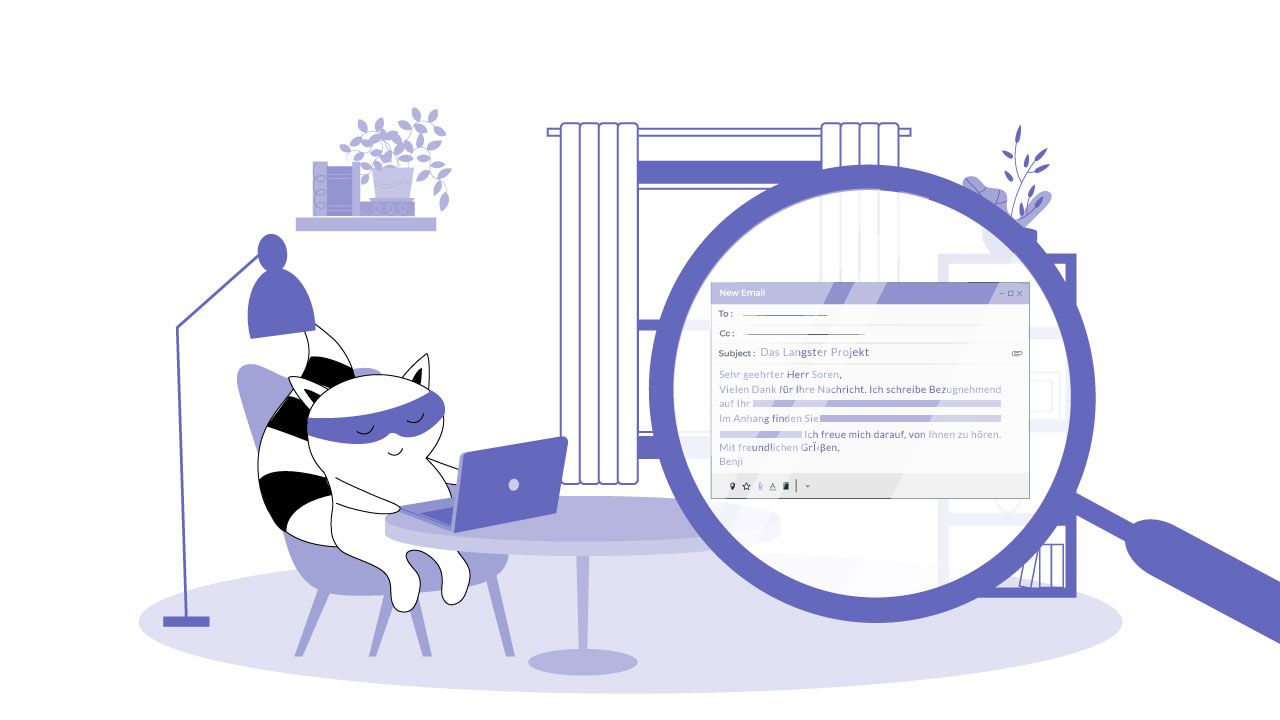
Telephone convesrations:
Native
Translation
Guten Tag, [name] am Apparat…
name] am Apparat…/ [Good day, [name] speaking…
Wie kann ich Ihnen helfen?
How can I help you?
Ich möchte mit [name] sprechen
name] sprechen/ [I would like to speak to [name]
Bleiben Sie bitte dran
Please hold the line
Können Sie das bitte wiederholen?
Can you repeat that, please?
(Firmenname) (Ihr Name), wie kann ich Ihnen behilflich sein?
(Company name) (your name) speaking, how can I help you?
Einen Moment bitte, ich stelle Sie durch zu…
Just a moment, I’ll put you through to…
Möchten Sie eine Nachricht hinterlassen?
Would you like to leave a message?
Darf ich fragen, mit wem ich spreche?
May I ask who I am speaking to?
Danke für Ihren Anruf
Thank you for calling
During a meeting:
Native
Translation
eine Besprechung ansetzen / terminieren
to schedule a meeting
an einer Besprechung teilnehmen
to attend a meeting
eine Besprechung vertagen
to postpone a meeting
die Tagesordnung
agenda
Lasst uns anfangen.
Let’s get started.
Lasst uns zum Geschäftlichen übergehen.
Let’s get down to business.
Danke, dass Sie gekommen sind.
Thank you for coming.
Das Ziel der heutigen Besprechung ist…
The purpose of today’s meeting is…
ein kurzer Überblick
a brief overview
etwas hinzufügen
to add something
Haben Sie noch Fragen?
Do you have any questions?
über etwas abstimmen
to vote on something
eine Angelegenheit besprechen
to discuss a matter
etwas erläutern, klarstellen
to clarify something
zum nächsten Punkt übergehen
to move on to the next point
die Schlussfolgerung
conclusion
die Zusammenfassung
summary
Zusammenfassen
to sum up
Das ist alles für heute.
That’s all for today.

Remember About Formalities: Sie and Du
In German, there are two forms of "you" – Sie and du. In formal conversations, it is always correct to use Sie. Du should only be used among friends or family members.
There are a few situations in which it is acceptable to use du even in formal conversations. For example, if you are addressing someone who is younger than you (be careful with this form), or if the other person has asked you to use du. In all the other situations, such as writing or speaking to someone regarding a formal/business matter, stick with Sie.
When starting working in a new company, remember to always start with the polite form. After some time, your coworkers or business partners might ask you to switch to the du form – but be prepared that this might never happen, depending on the person or organization you’re working in.
German Business Culture and Etiquette
German business culture is known for being highly formal and structured. It is important to be aware of the etiquette and customs that are typically observed in Germany, in order to avoid any embarrassing faux pas in the workplace.
One key thing to remember is that German speakers are very direct in how they speak. This can sometimes come across as rude, when in actuality Germans are notoriously straight to the point. It is important not to take offense if a German speaker seems abrupt or overly direct when expressing requests and criticism.
Another aspect of German business culture is the importance of punctuality. Germans value promptness and expect meetings and appointments to start and end on time. If you are running late for a meeting, it is considered proper etiquette to call ahead and let the other party know.
When shaking hands, it is customary to look the other person in the eye and give a firm handshake. Make sure you don’t keep your hands in your pockets during the conversations – it’s considered rude. To ensure the other person feels respected, use a person's surname with the titles Frau or Herr until you’ve gotten to know them on a first-name basis.
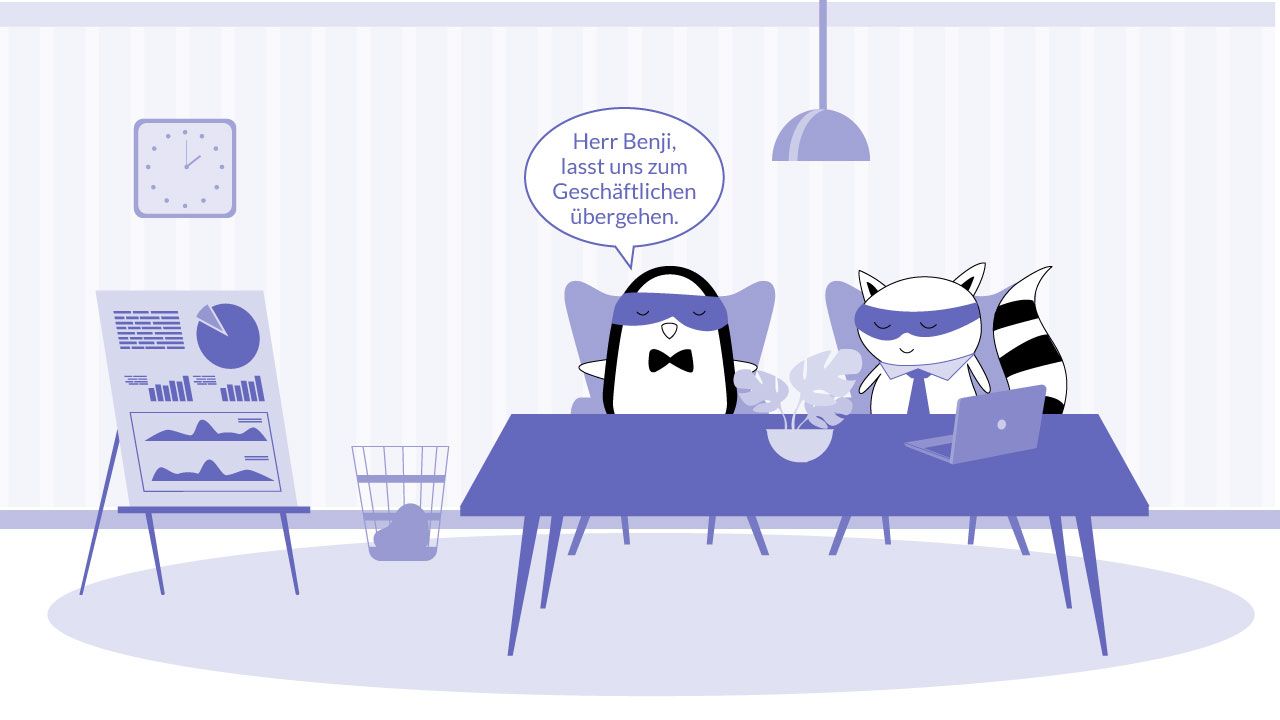
When negotiating with a German, make sure to keep the conversation fair, well-mannered, and well-planned. Introduce yourself formally, stay calm and make sure you can back up anything you say with data and evidence. Negotiate in an open, transparent manner – make sure that you are clear about your intentions and understand what the other person is trying to communicate.
How to Master Business German?
Learning a foreign language can be difficult, but it’s definitely worth the effort if you want to do business in a German-speaking country. There are a few things you can do to make the process easier and more effective.
One of the best ways to learn business German is to take business German courses. This will give you a strong foundation in the language and help you learn the specific terminology used in business settings, as well as boost your communication skills.
Another great way to improve your business German skills is to read more business literature in German and practice writing business letters. This will help you get used to the language patterns and vocabulary that are commonly used in the professional world. It can ease the memorizing process.
You can also improve your fluency by watching German TV shows and movies related to business. This will not only help you get a feel for how the language is used in real-life situations, but also improve all aspects of your general German language skills, such as listening, comprehension, and speaking.
Finally, it’s always helpful to practice with a native speaker. If you know someone who speaks German, ask them to help you practice your conversation skills. You can also find a business German tutor online who can help you practice specific skills like reading and writing.
Final Thoughts on Business German
Now that you know a little bit more about the German business culture and etiquette, as well as are familiar with some tips for learning German for business purposes, you should feel more prepared for the professional part of German life.
Remember that Business German is all about effective and polite communication – stay respectful, punctual, and transparent when running conversations on business topics, and you’ll be sure to make a great impression. Good luck!







